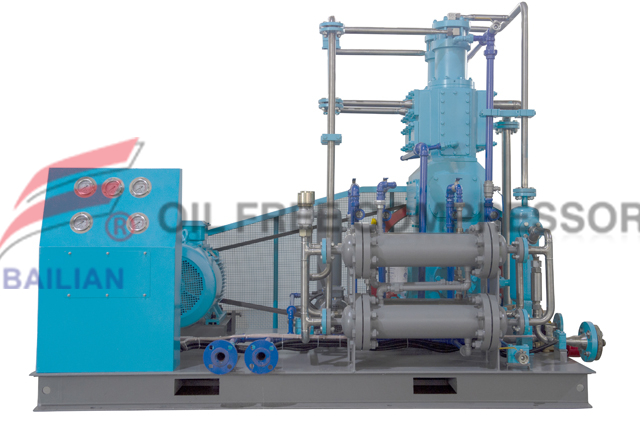- All
- Product Name
- Product Keyword
- Product Model
- Product Summary
- Product Description
- Multi Field Search
Views: 0 Author: Site Editor Publish Time: 2024-07-26 Origin: Site









When it comes to oxygen plants, the choice of compressor plays a crucial role in ensuring efficiency and reliability. The industrial oxygen compressor is the heart of the operation, responsible for compressing oxygen to the desired pressure levels. But with various types of compressors available, which one is best suited for an oxygen plant? This article delves into the different types of compressors used in oxygen plants, their advantages, and why the industrial oxygen compressor is a critical component.
Reciprocating compressors are one of the most commonly used types in oxygen plants. These compressors use a piston to compress the oxygen gas. The piston moves back and forth within a cylinder, creating pressure that compresses the gas. The industrial oxygen compressor often employs this mechanism due to its high efficiency and reliability.
Reciprocating compressors are known for their ability to achieve high pressures, making them ideal for applications where oxygen needs to be stored or transported at elevated pressures. However, they can be noisy and require regular maintenance to ensure optimal performance.
Rotary screw compressors are another popular choice for oxygen plants. These compressors use two interlocking helical screws to compress the oxygen gas. As the screws rotate, they trap and compress the gas between them. This type of industrial oxygen compressor is favored for its continuous operation and lower noise levels compared to reciprocating compressors.
Rotary screw compressors are also known for their durability and ability to handle large volumes of gas. They are often used in applications where a steady supply of compressed oxygen is required, such as in medical facilities and industrial processes.
Centrifugal compressors use a rotating impeller to increase the velocity of the oxygen gas, which is then converted into pressure. This type of compressor is typically used in large-scale oxygen plants due to its ability to handle high flow rates and produce a continuous supply of compressed gas.
While centrifugal compressors are efficient and have a longer lifespan, they are also more complex and expensive compared to reciprocating and rotary screw compressors. They are best suited for applications where large volumes of oxygen need to be compressed continuously.
Diaphragm compressors use a flexible diaphragm to compress the oxygen gas. The diaphragm is moved back and forth by a piston, creating pressure that compresses the gas. This type of industrial oxygen compressor is known for its ability to handle high-purity gases without contamination.
Diaphragm compressors are often used in applications where the purity of the compressed oxygen is critical, such as in the production of medical-grade oxygen. They are also favored for their low maintenance requirements and ability to achieve high pressures.
The industrial oxygen compressor is designed to provide efficient and reliable compression of oxygen gas. These compressors are built to handle the specific requirements of oxygen plants, ensuring that the gas is compressed to the desired pressure levels without compromising on quality or performance.
With advanced technology and robust construction, industrial oxygen compressors offer consistent performance, minimizing downtime and maintenance costs. This makes them a cost-effective solution for oxygen plants looking to maximize productivity and efficiency.
Industrial oxygen compressors are versatile and can be used in various applications, from medical facilities to industrial processes. Whether you need a steady supply of compressed oxygen for medical use or high-pressure oxygen for industrial applications, these compressors can meet your needs.
The ability to handle different types of gases and pressures makes industrial oxygen compressors a valuable asset for oxygen plants. They can be customized to suit specific requirements, ensuring optimal performance and efficiency.
Safety is a critical consideration in oxygen plants, and industrial oxygen compressors are designed with this in mind. These compressors are equipped with safety features such as pressure relief valves, temperature sensors, and automatic shut-off systems to prevent accidents and ensure safe operation.
By using an industrial oxygen compressor, oxygen plants can minimize the risk of leaks, contamination, and other hazards, ensuring a safe and reliable supply of compressed oxygen.
Choosing the right type of compressor for an oxygen plant is essential for ensuring efficiency, reliability, and safety. While there are various types of compressors available, the industrial oxygen compressor stands out for its versatility, efficiency, and ability to handle high pressures and purity levels. Whether you opt for a reciprocating, rotary screw, centrifugal, or diaphragm compressor, understanding the specific requirements of your oxygen plant will help you make an informed decision and ensure optimal performance.